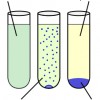How Many Days Before the Exam You Should Start Preparation?
Preparation for Exams should just be a review. The best time to read is immediately after class lessons. That is how it sticks.
its depend on you dear. first of all you need to plan like a project, when we are going to plan a project we will consider the TIME, COST and QUALITY likewise you can consider those things, then according to the important of your exam, you can allocate a reasonable time for the exam. after that you can decide how many days you need to prepare for the exam. in my opinion you need to allocate time based on the importance of the exam. if the exam is not much important for you give low priority and minimum time for that..... Coz in my opinion, the time and good health are the most valuable things in our lives..
Preparation for an exam starts with the first time you hear information. The better you learn it originally the less you have to worry about the exam.
I took a course on memorization techniques before college. I never had to do any studying outside of regular homework.but tack it a point to study exam techniques as well because some exams are there which we cant pass by memorizing the things. to pass those exam you need to work on exam tricks. as an example i can say IELTS no point of having good knowledge in English to pass this exam.
I'm not familiar with IELTS.
I can say that, for any exam, a small amount of stress during the exam is good, and stimulates the memory centers of your brain. However, long periods of stress leading up to an exam can actually have negative effects on the memory centers of the brain.IELTS is a exam which is mainly depend on the time management and exam tactics. actually subject knowledge is not the first thing for that... therefore, preparation is the most important thing for that....... but actually your point is correct for most exams.... therefore, my conclusion is preparation is based on the exam you are going to sit.
Couldn't agree more - as a teacher I press my students to start revision as soon as they have received the information. This way you transfer information from your short term to long term memory.
Revise information one day after receiving it
Then revise again one week
Then one fortnight
Then one month.
Of course, very few follow this route...myself included!
As soon as you are exposed to the material you are trying to learn. A student should approach academic work with the idea that there will eventually be a test. He/she should also approach the work with the attitude that LEARNING is the key thing, not passing the test. Then, guess what, he will pass the test. If the goal is simply to pass the test, the student can do so without really learning much. This is a major problem with our education system, the pervasive idea that passing tests is the primary goal - giving the appearance of having learned something without necessarily doing so. Style or form over substance - faking it. That is why Finland has the best test scores and the US is 13th or so in the world.
A couple weeks ago I took a Praxis test without studying at all and knocked it out of the park. I didn't expect to do well but turns out I knew the material pretty well - from a few years ago.
A teacherYou start to prepare for the exam the first day you sit down in class and read the syllabus, or possibly before that. If you plan well and spread the work out you hardly have to do any hard work, compared to last minute cramming.
The only subject you can't really cram for is higher mathematics.
You can screw around all semester than cram 2 days before the final for biology, anthropolgy, etc.
But if you haven't been doing your calc 2 hw or studying and think you can cram it all in 2 or 3 days your going to be disappointed.Ideally, you should begin exam preparation once class begins. However, this is often not practical as there are all kinds of other deadlines to meet. Starting exam prep at least one week before the exam is wise.
If it is mathematics or statistics, you should practise a variety of questions.
It is useful to get hold of the past exam questions, so you know how to focus your study.
One must carefully review information as soon as it is given. My motto is intense preparation through babysteps. That way more information is retained than simply cramming two days before an examination.
As soon as you start classes. Basically what gmwilliams said. You have to start digesting information the moment you get it. Understanding takes time and when you do, it reduces the need to actually memorize notes. After all, exams ARE about testing your UNDERSTANDING
I disagree with the approach of studying for a test. I think our academic system is in error for emphasizing studying FOR a test. The test is simply that: a test of something we should already know. If we are truly committed to learning the material we are being taught, we will learn it without any other thought other than learning the material and getting the most out of what we are taught. So my advice is: learn as much as you can, as well as you can, the entire year. Don't worry about the test. If you know it, you know it. If you don't, you don't. This seems to be the approach that works best for me.
If your goal is only to pass the exam the answer is between 1 day and however many days there are in the course, depending on how good you are at exams and how much material there is to cover. You'll generally learn your own abilities and how much time you'll need to set aside fairly early on in your academic career. If you want the knowledge to stick you should never ever stop reading over old and new material, approaching it from different angles each time. At first this may seem daunting but on the contrary it's actually good to keep refreshing our knowledge. Otherwise our understanding of the world would become static.
Related Discussions
- 20
How to study and prepare for exams?
by viewfinders 13 years ago
How to study and prepare for exams?Many students show good performance in the class,but after the examination/test most of their result will be average.They saying that, while seeing question paper they forget what they studied, Share some tips from your experience to overcome ...
- 17
9 days before my period, but feel very fat
by cangel1019 14 years ago
i have been trying to get preg. for over a year and have had no luck, so far... this month my body feels different such as i feel fat, like i have eatten a cow.. and it it isnt going away..i still have 9 days before i get my period so i havent taken a preg test yet, i also have pinching in my left...
- 9
Is exam s true test of knowledge?
by Barine Sambaris 11 years ago
Is exam s true test of knowledge?From my experience there are various factors that could affect the performance of a student in an exam.
- 4
Why is cramming night before exam not as effective as studying at intervals for
by ngureco 13 years ago
Why is cramming night before exam not as effective as studying at intervals for longer span of time?Why do we easily remember things better when they have been studied over a long span of time?
- 387
Where was Jesus in the three days before He rose again?
by gracefaith 12 years ago
I am not sure where Jesus was in the 3 days following His crucifixion before He rose again. Some say Hell. I did not think God could be in the presence of sin in that way, but as Jesus was separated from the Father at that time and also carrying the full weight of sin, is it probable that He was in...
- 13
What does having an IQ above 145 mean? Are these people really 'genius'?
by Hansika Sachdeva 6 years ago
What does having an IQ above 145 mean? Are these people really 'genius'?




















